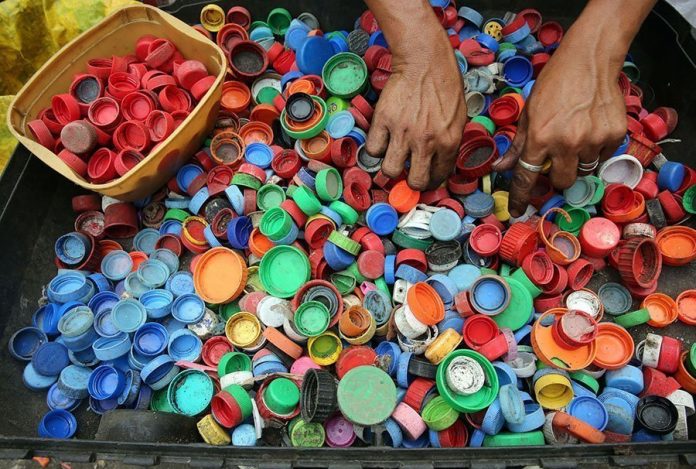Researchers from the institute for global food security at Queen’s University Belfast are finding ways to investigate the damage that nano plastics and microplastics can have on the human body. Queen’s University Belfast, located in Belfast, Northern Ireland, had received a grant of about 1 million Euros last year to fund a research project that will address plastic waste.
The researchers are working as a part of an international consortium led by Aston University. Also, they have been awarded over half a million pounds from the European Commission as a part of the Marie Skłodowska-Curie Actions.
There are estimated 5.25 trillion particles of plastic floating in the oceans. This is not only threatening the health of marine ecosystems and animals, but it is also posing threat to humans in many other ways.
Microplastics come from a range of everyday items through the breakdown of large plastic waste in bottles, shopping bags and industrial waste. Apart from this, they also come in the form of microbeads, which are small, manufactured plastic beads used in health and beauty products. Recent studies have found them in soil, tap water, bottled water, beer and air. This has led to a growing concern worldwide about the potential health risks they pose.
Professor Chris Elliott, co-leader of the project from the institute of global food security at Queen’s University Belfast said, “There has been a growing concern about the potential health risks microplastics pose to us, whether through ingesting the harmful bacteria they pick up when coming through wastewater plants, or the effect these nanoplastics could have when coming into contact with human cells.”
“The global production of plastic, that can take hundreds of years to biodegrade, is expected to triple by 2050 meaning the problem is only set to increase. This illustrates the urgent need for more research into the damage these plastic particles could be causing to us if we are to tackle possibly one of the planet’s greatest threats to our existence,” Professor Elliott added.
To address this increasingly serious problem, the European Commission is planning to issue a new drinking water legislation, to be published in 2019, which will ensure that water companies will need to measure concentrations of microplastics from within two years for positive release and inspection.
Dr Cuong Cao, who co-leads the ongoing project, from the school of biological sciences at Queen’s University Belfast said, “While in theory, we welcome this legislation, but in practical terms, there are huge financial and resource implications that could prevent its implementation. Highly skilled professionals will be required to operate the high-tech equipment and to run these tests successfully if we are to meet these standard measurements.”
“With the number of plastics set to increase each year, coupled with the complexity involved to reach an EC standard, this research project has come at a crucial time. It will enable us to work in collaboration with the most skilled researchers across Europe to enhance their skills as well as developing new technologies to enable industry and businesses to adhere to the proposed legal requirements of nano and microplastics in food and drink,” Dr Cao said.










